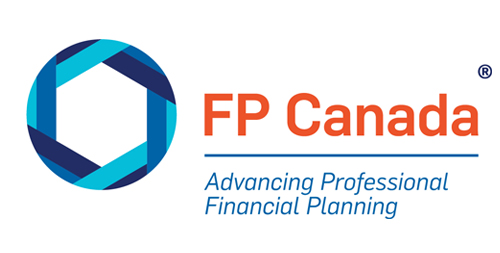Economic Policy
KNOWLEDGE EXPECTED OF: QAFP® Professionals
Highest Knowledge Level: Awareness
Knowledge Levels and Associated Verbs
|
Awareness
The state of being aware that something exists / to have familiarity with a particular activity or subject
|
Understanding
To comprehend the general relationship of particulars / to have an expertise with how something works
|
Application
Ability to put information to use / to use knowledge for relevant, practical purposes
|
Evaluation
To judge or conclude by utilizing data / a systematic determination of something’s worth or significance
|
||||||
|---|---|---|---|---|---|---|---|---|---|
|
Define
To state exactly the meaning of
|
Identify
To be aware of / to recognize and correctly name / to locate an appropriate resource
|
Explain
To make clear the meaning of / to describe something in more detail or reveal relevant facts or ideas related to it
|
Determine
To ascertain / to come to a decision, such as by investigation or reasoning
|
Compare
To note the similarities and differences between two or more things
|
Estimate
To determine an approximate value for
|
Calculate
To find the value using mathematics
|
Convert
To change from one form or purpose to another
|
Evaluate
To reach a conclusion or make a through careful study
|
Interpret
To give the meaning of / to construe or understand / to translate orally
|
Hold cursor over or click on each term to read its definition.
Fiscal Policy
- Define fiscal policy.
- Identify who is responsible for Canadian fiscal policy.
- Define a government budget surplus.
- Define a government budget deficit.
- Identify the types of government debts that exist.
- National debt.
- Provincial debt
- Municipal debt
- Identify the impact a government’s budget has on its financial position.
- Identify when budget proposals by the federal or provincial/territorial governments become law.
- Identify the fiscal policy tools available to the government.
- Spending
- Taxation
- Define types of fiscal policy.
- Contractionary
- Expansionary
- Identify the expected effects that a fiscal policy decision may have on asset values.
Monetary Policy
- Define monetary policy.
- Identify who is responsible for Canadian monetary policy.
- Identify the Bank of Canada’s current monetary policy.
- Define types of monetary policy.
- Expansionary
- Contractionary
- Identify the expected effects that a monetary policy decision may have on asset values.
- Identify that foreign central bank policy decisions may affect the Canadian economy.
KNOWLEDGE EXPECTED OF: CFP® Professionals
Highest Knowledge Level: Application
Knowledge Levels and Associated Verbs
|
Awareness
The state of being aware that something exists / to have familiarity with a particular activity or subject
|
Understanding
To comprehend the general relationship of particulars / to have an expertise with how something works
|
Application
Ability to put information to use / to use knowledge for relevant, practical purposes
|
Evaluation
To judge or conclude by utilizing data / a systematic determination of something’s worth or significance
|
||||||
|---|---|---|---|---|---|---|---|---|---|
|
Define
To state exactly the meaning of
|
Identify
To be aware of / to recognize and correctly name / to locate an appropriate resource
|
Explain
To make clear the meaning of / to describe something in more detail or reveal relevant facts or ideas related to it
|
Determine
To ascertain / to come to a decision, such as by investigation or reasoning
|
Compare
To note the similarities and differences between two or more things
|
Estimate
To determine an approximate value for
|
Calculate
To find the value using mathematics
|
Convert
To change from one form or purpose to another
|
Evaluate
To reach a conclusion or make a through careful study
|
Interpret
To give the meaning of / to construe or understand / to translate orally
|
Hold cursor over or click on each term to read its definition.
Fiscal Policy
- Define fiscal policy.
- Identify who is responsible for Canadian fiscal policy.
- Define a government budget surplus.
- Define a government budget deficit.
- Identify the types of government debts that exist.
- National debt.
- Provincial debt
- Municipal debt
- Define types of fiscal policy.
- Contractionary
- Expansionary
Monetary Policy
- Define monetary policy.
- Identify who is responsible for Canadian monetary policy.
- Identify the Bank of Canada’s current monetary policy.
- Define types of monetary policy.
- Expansionary
- Contractionary
- Identify that foreign central bank policy decisions may affect the Canadian economy.
Additional Knowledge Expected of CFP Professionals
Fiscal Policy
- Explain the impact a government’s budget has on its financial position.
- Compare the government deficit and government debt.
- Explain when budget proposals by the federal or provincial/territorial governments become law.
- Explain the fiscal policy tools available to the government.
- Spending
- Taxation
- Compare contractionary and expansionary fiscal policy.
- Explain the expected effects that a fiscal policy decision may have on macroeconomic variables (such as gross domestic product, inflation, interest rates, exchange rates) and asset values.
Monetary Policy
- Compare contractionary and expansionary monetary policy.
- Explain the expected effects that a monetary policy decision may have on macroeconomics variables (such as gross domestic product, inflation, interest rates, exchange rates) and asset values.



 previous / Economic Indicators
previous / Economic Indicators